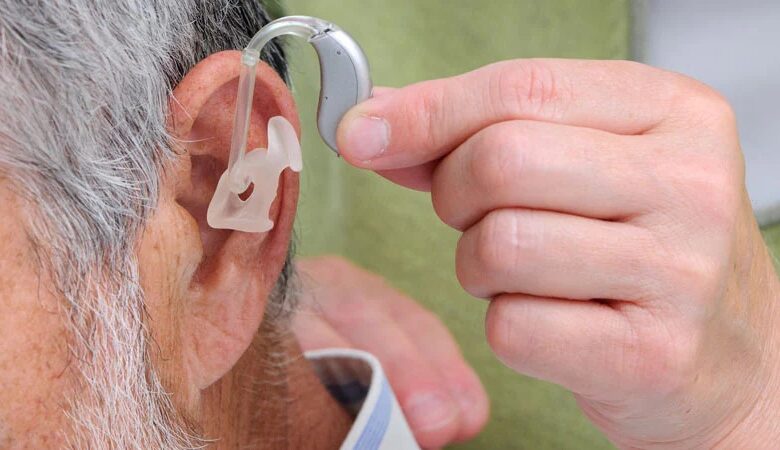Hearing Aids Offer Protection Against Cognitive Decline in At-Risk Older Adults, New Study Finds

A groundbreaking study published in The Lancet journal has revealed that hearing aids may play a crucial role in protecting older adults at risk of dementia from cognitive decline. The research, conducted by Professor Frank Lin from Johns Hopkins University School of Medicine and Bloomberg School of Public Health in the US, provides compelling evidence that addressing hearing loss can be a powerful tool in safeguarding cognitive function in later life and potentially delaying dementia diagnosis.
While previous studies on hearing aids and cognitive decline in the general population did not show significant impact over three years, this new study focused on older adults with a higher risk of dementia and demonstrated that treating hearing loss with hearing aids led to protection against cognitive decline.
The research, which marks the first randomized controlled trial (RCT) of its kind, involved nearly 1,000 older adults from multiple locations across the USA. The participants, aged between 70 and 84 years, had untreated hearing loss but were free from substantial cognitive impairment. They were randomly assigned to either a hearing intervention group, which received audiological counselling and hearing aids, or a control group that received more general counselling on healthy aging.The findings of this RCT reinforce the growing body of evidence indicating that addressing hearing impairment could be a critical global public health strategy for dementia prevention. Age-related hearing loss affects two-thirds of adults over the age of 60 worldwide, but the use of hearing aids remains relatively low, particularly in low- and middle-income countries.
The link between untreated hearing loss and cognitive decline has been established in previous research, with the 2020 Lancet Commission on Dementia estimating that hearing loss contributes to approximately 8% of dementia cases globally, equivalent to 800,000 new dementia cases each year.
There are several theories explaining how untreated hearing loss may contribute to cognitive decline and dementia. One possibility is that the brain exerts more effort to process auditory information, which might negatively impact other cognitive functions such as memory and thinking. Another theory suggests that hearing loss may cause the brain to shrink at a faster rate. Additionally, reduced social engagement resulting from hearing loss may lead to decreased brain stimulation, potentially leading to brain atrophy.
The ACHIEVE randomized trial sought to address potential biases in previous observational research by specifically targeting cognitively-healthy older adults with untreated hearing loss. The results revealed that the hearing intervention did not reduce cognitive decline over the three-year study period compared to the control group receiving general counselling on healthy aging.
However, it is essential to note that the effectiveness of hearing aids in preventing cognitive decline may be influenced by various factors, including the severity and duration of hearing loss, the overall health of the individual, and their social engagement.
While the primary analysis did not demonstrate a significant difference in cognitive change between the hearing intervention and control groups, the study’s findings still underscore the importance of further research in this area. The relationship between hearing loss and cognitive function is complex, and ongoing investigations are vital to better understand the potential benefits of hearing aids in safeguarding cognitive health.
News Mania Desk/Agnibeena Ghosh , 19 July 2023






